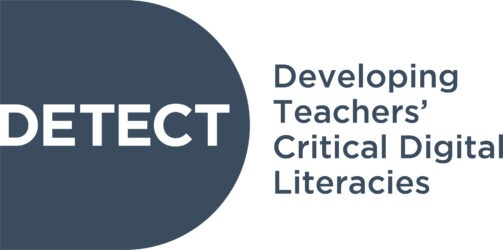This is an online quiz on the topic of fake news. The quiz is divided in three parts. You start with the first part and you progress to the next quizzes. Also you need to select the quiz that best suits the child’s age. It takes about 15 – 30 mins to play to get the best out of it.
Video presentation of the DETECT Critical Digital Literacies framework
This resource is a video lecture where the researchers Liisa Ilomäki and Minna Lakkala from the University of Helsinki The length of the video is 9.27 minutes.
Critical Digital Literacies Framework
The Critical Digital Literacies framework for educators aims to capture the various dimensions and sub-dimensions of critical digital literacies which are vital for educators and students living, teaching and learning in a digital world.
Read the Framework here.
Misleading information
This is a visual resource that teachers and students can use to deepen the theme of misleading information type. This infographic offers a useful classification, indicating also the characteristics of these information and their impact. This resource has been developed by EAVI – the European Association for Viewers Interests. It is an international non-profit organisation in Brussels that promotes media literacy in the perspective of active citizenship.
Old Ford Primary case Primary school
This resource is a learning object based on technology H5P and could be implemented in any WordPress or Moodle course. It contains a full activity aimed at exploring a dimension of the Critical Digital Literacies Framework: Information Literacies. The aim of the activities embedded in this learning object are to develop teachers’ understanding of the main problems of technology usage around the CDL subdimensions Digital media use, Online inquiry process, Online reading comprehension and Source validation and verification for the primary school level. Therefore the teachers can delve into the concepts, current research and policymaking context; they are offered questions to reflect on their teaching to deal with a critical usage of technology. Moreover, the teachers are provided with some instructions to reflect on design for learning to develop critical digital literacies in their classrooms.

